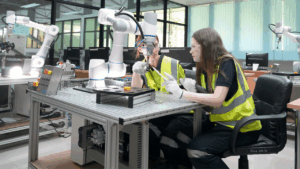By Fiona Wren, EPt
The organizers of the 2016 Summer Olympic Games have, by all accounts, been committed to producing an event that lowers the usual environmental footprint of the Olympics.
The Games are traditionally known as resource hogs, and these games are no different. With controversy surrounding the event (even as we’re glued to our televisions), we thought we’d take a look at some of the issues and innovations.
What’s in Rio’s Bays and Beaches?
National Geographic takes a look, as media reports of contaminated water and risks to athletes circulate.
Sustainable Bling
The medals are different — made from carefully sourced materials and tapered in a way that’s never been seen before.
No Flowers Here
You might be wondering why the medalists at these games don’t receive the traditional bouquet of flowers. Here’s how sustainability changed the medal ceremony.
Snack Bar, Open
No question, food is a huge part of any sporting event. Organizers in Rio took it seriously and implemented several programs aimed to ensure sustainable sourcing and waste management.
The Move Toward Responsible Food Sourcing
Rio’s Food Waste Program
How every sporting event can do better
The Guardian breaks down how all sporting events can lower their environmental footprint.
What about the future?
A recent study from the University of California, Berkeley, looks at the future of the Summer Olympics and how climate change might affect the event In significant ways, as most cities in the Northern Hemisphere become unsuitable to host.
Have you got a story to share about innovations in sustainability in sport? Pass it on and we’ll share it with the ECO Canada Community.





